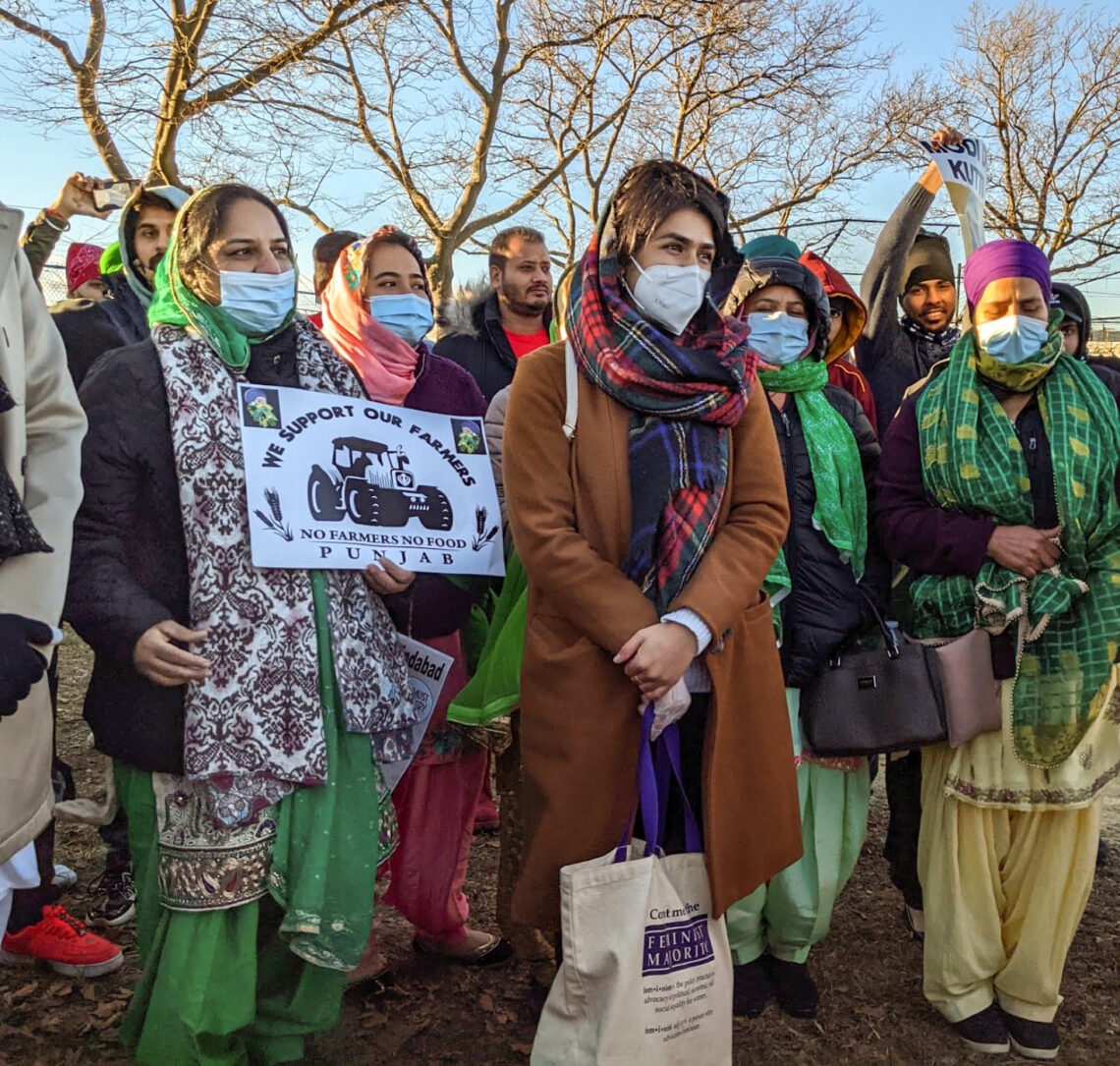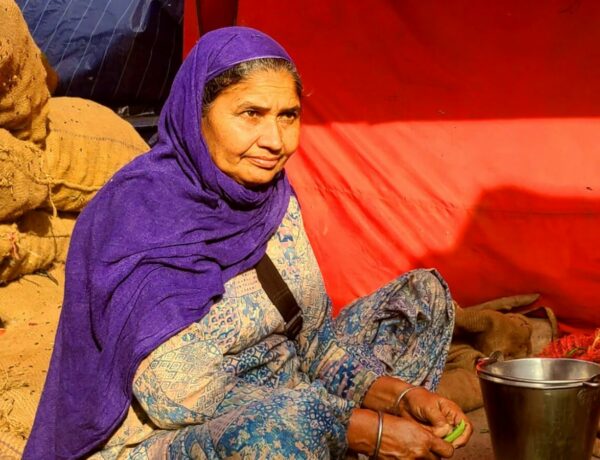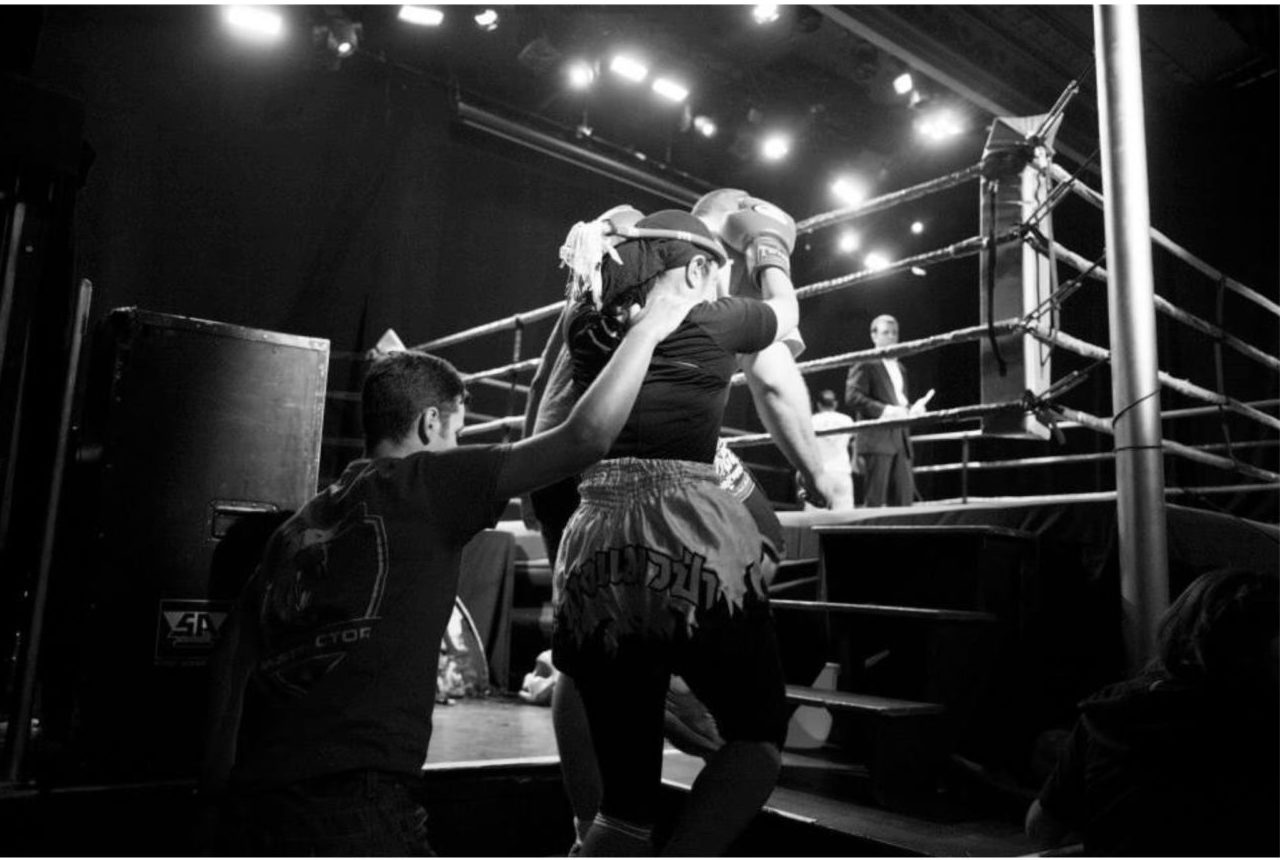By Jaslin Kaur
There is nowhere I would rather celebrate Women’s History Month than my hometown of Queens, New York City — a place powered by the love, labor, and legacy of working immigrant women.
My mom is one of those women. In the 1990’s, she emigrated from Punjab, where she was going to be a professor. In the US, however, she spent my childhood doing the hard work of raising me and my brother. She would cook and clean and do laundry and drive us to and from school every single day, even when we had different pickup times. Three years ago, she got a job at a grocery store, where she’s a proud member of the labor union, RWDSU Local 338.
There are many women like my mother who make up the backbone of their families. And there are many aunties who do the same for the whole community: Our sangat is held by the seva of Sikh women.
Aunties were a vital piece of my upbringing. After all, children need more adults to turn to than just their parents, and parents need support in managing all the obligations that come with raising children. Aunties often were the neighbors that would pick us up from school or take care of us if our parents weren’t free. If it hadn’t been for aunties stepping up for my family, I might never have learned the all-important value of seva, in the form of community service. I am also learning that seva also comes in the form of protest.
One recent Queens action in solidarity with the farmer’s protest was a rally and car caravan. I was stopped at a red light, loudly playing Punjabi music, in a car decorated with protest signs, when an auntie who goes by Rinky crossed the street. She waved to me, so I rolled down my window to say hello. It turned out she had wanted to be in the caravan but, since her husband was at work and her children at school, she didn’t have anybody to go with. I was alone in my car, so she asked if she could come with me, and sure enough: masks on, windows down, music blasting, we spent two hours together in the caravan! She told me all about her life and her family, and I told her about my city council campaign, and we talked about how grateful we were that the farmers’ protest had brought us together: youth and elders.
It’s not just the aunties of East Queens that I am celebrating this month. It is all the women mazdoors and kisaans, laborers and farmers, of Punjab, camped out for month after month and leading large rallies. Women who brave rampant femicide, sexual violence, caste-based violence, and gender discrimination to stand up for their livelihoods. Women like Nodeep Kaur, a Dalit labor activist, and her sister Rajveer Kaur, who since Nodeep’s release from jail, have continued organizing to free other imprisoned labor and farmer activists.
They shed a new light on seva for me: when your community is under attack and huge corporations are making a play to destroy your traditions, exploit your people, and extract wealth from your labor and land, seva also looks like taking collective action. I derive strength and inspiration from our sangat thousands of miles away when I stand up for my family and community here in Queens.
Here too, giant corporations are trying to destroy traditions, exploit my people, and extract windfall profits from our pain. For example, take my father, who has been driving a yellow taxi cab for almost thirty years. Growing up, I’d hear him start the car at 3 or 4 in the morning and know I wouldn’t see him until 5 or 6 that evening. He worked and worked until his health deteriorated, in order to provide my family the dignity and prosperity he was promised were available in the United States.
But Wall Street had other plans. No sooner had they gotten bailed out from the 2008 mortgage crash, than the banks decided to do the same thing again, only this time to the taxi medallion market. What was, to so many drivers, the foundation of their livelihoods was, to finance executives, just another asset to buy low and sell high. When the medallion crash came in 2014, too many Queens families got locked into a punishing cycle of debt and default, too many couldn’t put food on the table, and too many lost their homes, or even took their own lives.
For me, the crash meant dropping out of college after just one year, going on food stamps for two years, and to this day struggling to catch up on bills and taxes. It also fueled my mission to seek justice for not just my family, but all Queens families who have been taken advantage of.
Whether it’s corporate food sellers exploiting the farmers of Punjab or huge tech corporations like Uber, Seamless, and DoorDash, exploiting the rideshare drivers of Queens, winning the right to a stable life, with economic security, reliable housing, and a dignified income means taking action, together.
I would urge you to support the efforts of the New York Taxi Workers Alliance (NYTWA), who have been returning to the Mayor’s mansion every single day to protest, and are determined to continue until they get debt relief. And of course I would implore you to support the farmer and laborer protests, including by donating to Sahaita’s Farmer Support Project.
Sikh women are taking the lead here and in my ancestral homeland by bringing our seva to the frontlines. This Women’s Month I couldn’t be more proud to join together to fight for a more just, dignified, and free future for us all.
About Jaslin Kaur
Jaslin Kaur (she/her) is a Sikh Punjabi advocate and organizer, born and raised in Glen Oaks, District 23, Queens NY, and CUNY alumna.
Photo: The author, center, and Rinky Auntie, holding sign.





No Comments